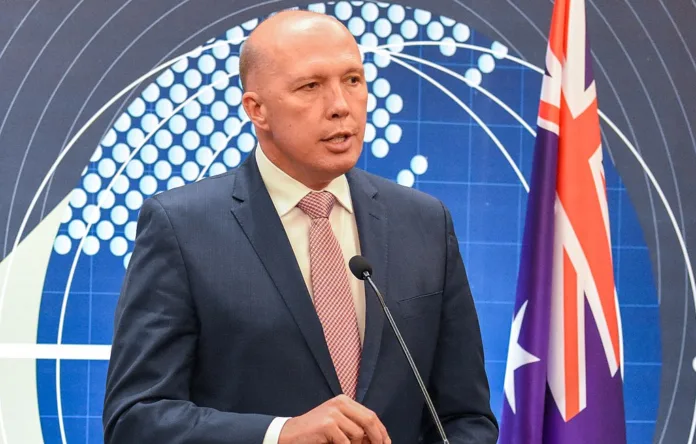Opposition leader Peter Dutton seizes on a report supporting small modular reactors (SMRs), criticizing the Albanese government’s renewables-only strategy
Australian Opposition Leader Peter Dutton has renewed calls for a domestic nuclear power industry following the release of a new report from the Australian Academy of Technological Sciences and Engineering (ATSE). The report suggests that small modular reactors (SMRs) could be commercially viable by the late 2030s, with a fully established market in the 2040s.
Dutton, speaking in New South Wales’ Hunter Valley, argued that Australia needs a reliable, baseload power source beyond renewables. He criticized the Albanese government’s renewable energy policy, claiming it leads to rising power prices and unreliable electricity supply. “We can’t continue the situation that Labor has us on of a renewables-only policy,” Dutton said. “Power prices are going to keep going up and up under this Prime Minister.”
Embed from Getty ImagesThe ATSE report acknowledged the potential of SMRs but noted significant uncertainties regarding their technical and financial viability. It highlighted that the technology is still emerging and faces considerable risks, including regulatory, legal, and social acceptance challenges. ATSE President Katherine Woodthorpe cautioned against rushing into nuclear adoption and suggested waiting until SMRs are successfully operational in other developed economies.
Dutton’s argument was reinforced by a separate report from the Australian Energy Market Operator (AEMO), which revealed that a lack of wind energy in the June quarter led to a 70% increase in gas demand and nearly doubled wholesale power prices in parts of Australia’s south-east. He emphasized the need for a stable baseload power source to complement intermittent renewable energy.
Despite Dutton’s push for nuclear power, the Albanese government remains sceptical. They argue that nuclear reactors are too expensive and would come online too late to address immediate energy needs. The government supports renewable energy investments and technology improvements as the more viable solution for Australia’s energy future.
The debate over nuclear power versus renewable energy highlights the broader discussion on how Australia can meet its energy needs while balancing cost, reliability, and environmental goals.
Analysis:
Political: The report and Dutton’s advocacy may intensify the political debate over Australia’s energy future, particularly between the Coalition’s nuclear stance and the Albanese government’s renewable energy strategy.
Social: Public opinion may shift depending on perceptions of energy reliability and cost. The discussion around nuclear power also touches on broader issues of technological risk and environmental impact.
Economic: The potential adoption of nuclear technology could influence Australia’s energy market dynamics, investment strategies, and long-term energy costs. The emphasis on SMRs might attract interest from both domestic and international investors.
Environmental: The environmental implications of expanding nuclear power versus enhancing renewable energy infrastructure will be a key consideration in the ongoing debate. The impact of each strategy on Australia’s climate goals and sustainability efforts will be scrutinized.
